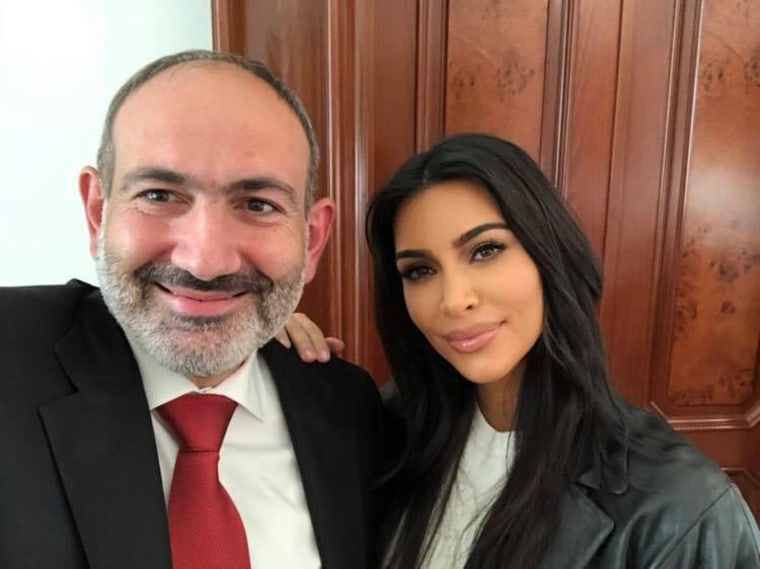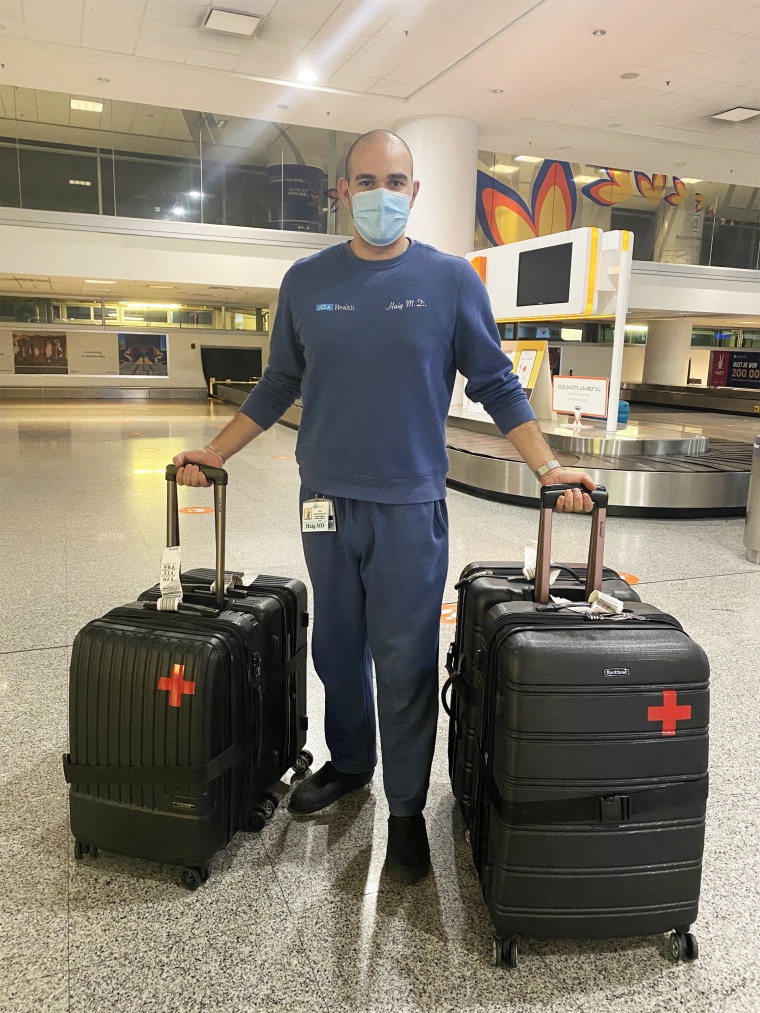Many ethnic Armenians this week set fire to their homes as they prepared to cede land to Azerbaijan under the terms of a fragile armistice between the two countries.
Half a world away, half a million Americans of Armenian descent could help determine the course of war and peace in this troubled region, as they wield influence, experts say, far greater than their numbers.
“In terms of domestic U.S. politics, the Armenian diaspora in America is punching above its weight,” said Richard Giragosian, director of the Regional Studies Center, an independent think tank in Yerevan, Armenia.
A treaty signed Nov. 9 between Armenia and Azerbaijan ended six weeks of warfare over the separatist region of Nagorno-Karabakh in western Asia’s South Caucasus region. The disputed territory, which has had a majority ethnic Armenian population and pro-Armenian administration since a bloody war in the 1990s, is internationally recognized as part of Azerbaijan.
Some of the 800,000 ethnic Azerbaijanis displaced during that conflict have now begun to return to Nagorno-Karabakh and several other surrounding territories under the terms of the recent agreement.
Three failed cease-fires in as many weeks make the future of the new armistice uncertain. And ethnic Armenians in the United States, with their ability to help shape U.S. foreign policy for the region and the global perception of Armenia, could help shore up international support for their cause, analysts say.
Armenian Americans are few compared to other influential diasporas: Cuban Americans have more than four times their number, for example, and the Jewish American community is up to 14 times larger. But the Armenian lobby wields significant influence — with the help of high-profile Armenian Americans including Cher, who was born Cherilyn Sarkisian, and the Kardashian dynasty of reality television.
In 2019, the Armenian American political lobby helped secure Armenia a U.S. foreign assistance budget of $60 million — a 40 percent increase on the previous year.
The Azerbaijani American community is far smaller and newer, Lala Ragimov, president of the Azerbaijani Women of America, said. “It is seriously young compared to the Armenian diaspora. As a community, we're still learning to lobby.”
The diaspora united to fiercely advocate for the Azerbaijani perspective during the conflict, and sent humanitarian supplies to Azerbaijanis affected by the war, she added.
Azerbaijanis welcomed the recent ceasefire as the end to a 30-year illegal Armenian occupation of Azerbaijan's land, Ragimov said. Armenian Prime Minister Nikol Pashinian called the deal “unbelievably painful.”
But many Armenian Americans now hope President-elect Joe Biden’s incoming administration will provide a stronger support for Armenia’s interests in the region, Giragosian said.
Biden has been historically critical of Turkey and Azerbaijan, and Vice President-elect Kamala Harris built her career in California, the state with the largest Armenian American population.
The Armenia lobby helped draft several of Biden’s statements on Nagorno-Karabakh during his campaign, according to Giragosian. Biden called on President Donald Trump to reinstate a block on U.S. aid to Azerbaijan, criticizing the country for “impos[ing] a military solution to this conflict,” and the Trump administration for “coddling Ankara.” He also urged Armenia to begin "credible negotiations" to prevent further warfare once a ceasefire was reached.
It could be part of what analysts say is Armenian Americans’ tendency to be uncompromising compared to Armenians in the region.
“We had no choice [other than to accept the treaty], but I’m living in Armenia,” Giragosian said. “Someone sitting in Los Angeles or Boston is much more comfortable with a maximalist hard-line nationalist demand.”
Armenian Americans took to the streets during the Nagorno-Karabakh conflict in October, shutting down a highway and gathering outside media offices in Los Angeles calling for more coverage of the war. Organizations like the Armenia Fund, a Los Angeles-based nonprofit, raised over $80 million for humanitarian aid for the Nagorno-Karabakh region. Armenian Americans also traveled to the region to bring supplies, provide medical aid, and some dual nationals even joined the Armenian military.

Nearly 20 million people also watched a video Kim Kardashian posted on Instagram on Oct. 10 in support of Armenia. Kardashian visited the country during an episode of her family’s TV show in 2016.
Armenian American advocacy has been strongly focused on events in the early 1900s, when up to 1.5 million Armenians were killed after being expelled from their homes by the Turkish Ottoman empire.
The 1915 event has been recognized as a genocide by international scholars, although Turkey and Azerbaijan reject the label, attributing the deaths to fighting in World War I and civil unrest.
Fighting to ensure the deaths are called a genocide is “the one communal experience that binds” Armenian Americans, because so many are descended from survivors, Susan Pattie, cultural curator and ethnographer at London’s Armenian Institute, said.
U.S. politicians have courted the Armenian American vote for decades, with presidential candidates, including Biden, pledging to recognize the deaths as a genocide if elected. Although the Senate passed a unanimous resolution in favor in 2019, no president has done so thus far.

Dr. Haig Aintablian, 28, an emergency medicine specialist from Los Angeles, is the great-grandson of survivors. That motivated him to travel to Armenia in November to treat Armenians injured in Nagorno-Karabakh.
“My grandma used to say, ‘Eat, because you don't know when you're going to eat again,’” he said.
Many Americans’ connection to Armenia will always be rooted in stories of violence passed down, George Avakian, 34, a real estate agent who grew up in Glendale, California, said. He took humanitarian supplies from the U.S. to Armenia in October.
“You want to protect [Armenia], but at the same time, a lot of diasporans don't feel that home connection,” he said. “It's more of an ancestral connection. It's a wound that never closed.”


